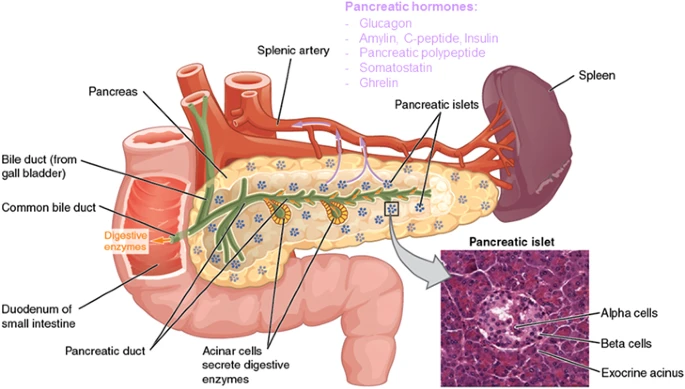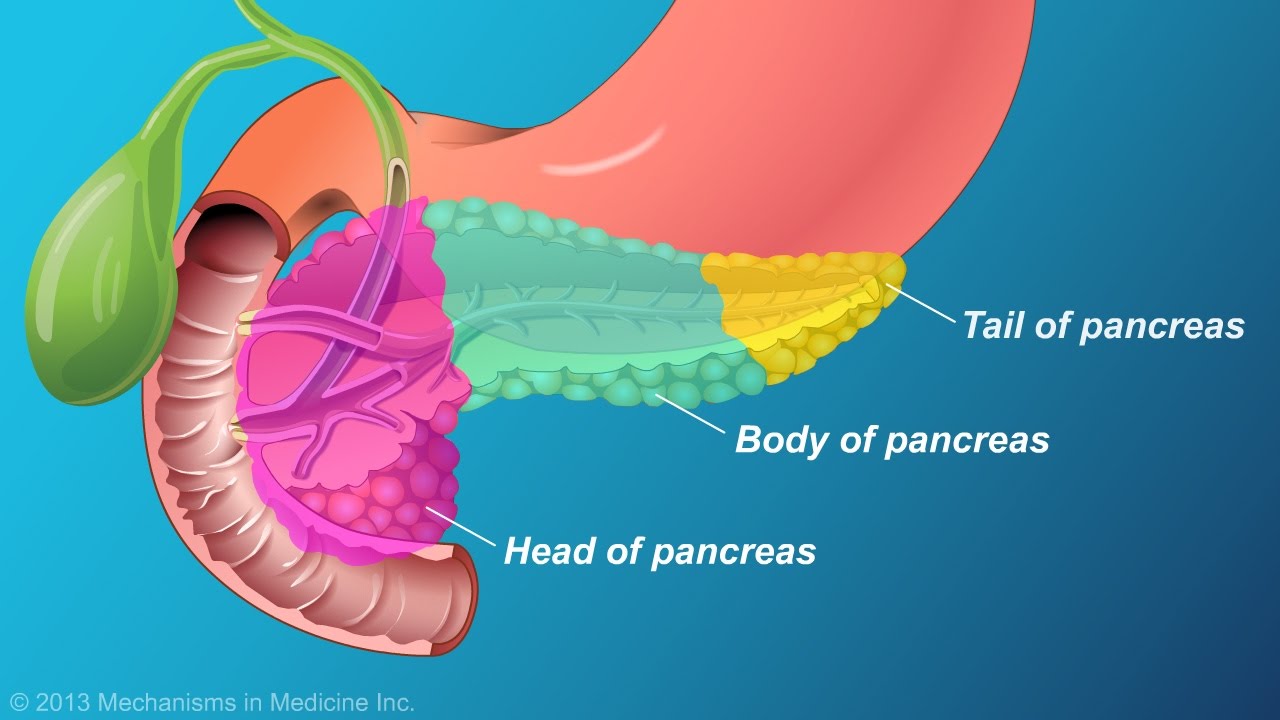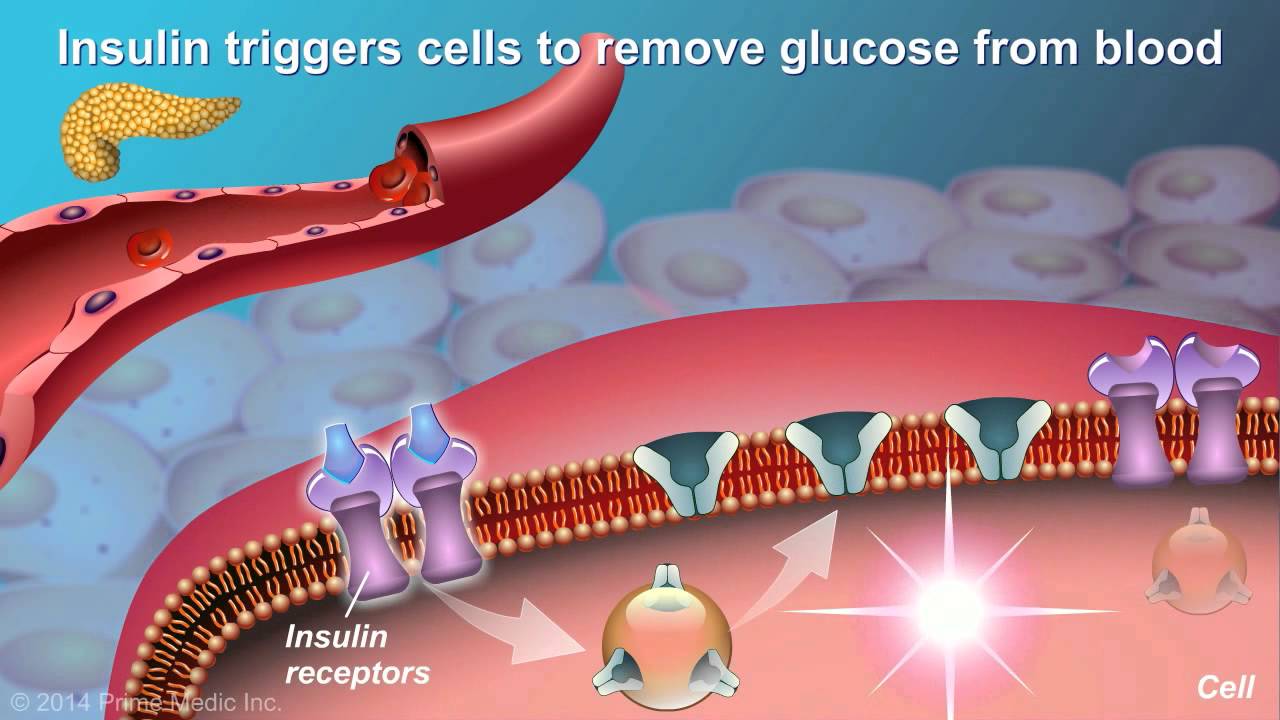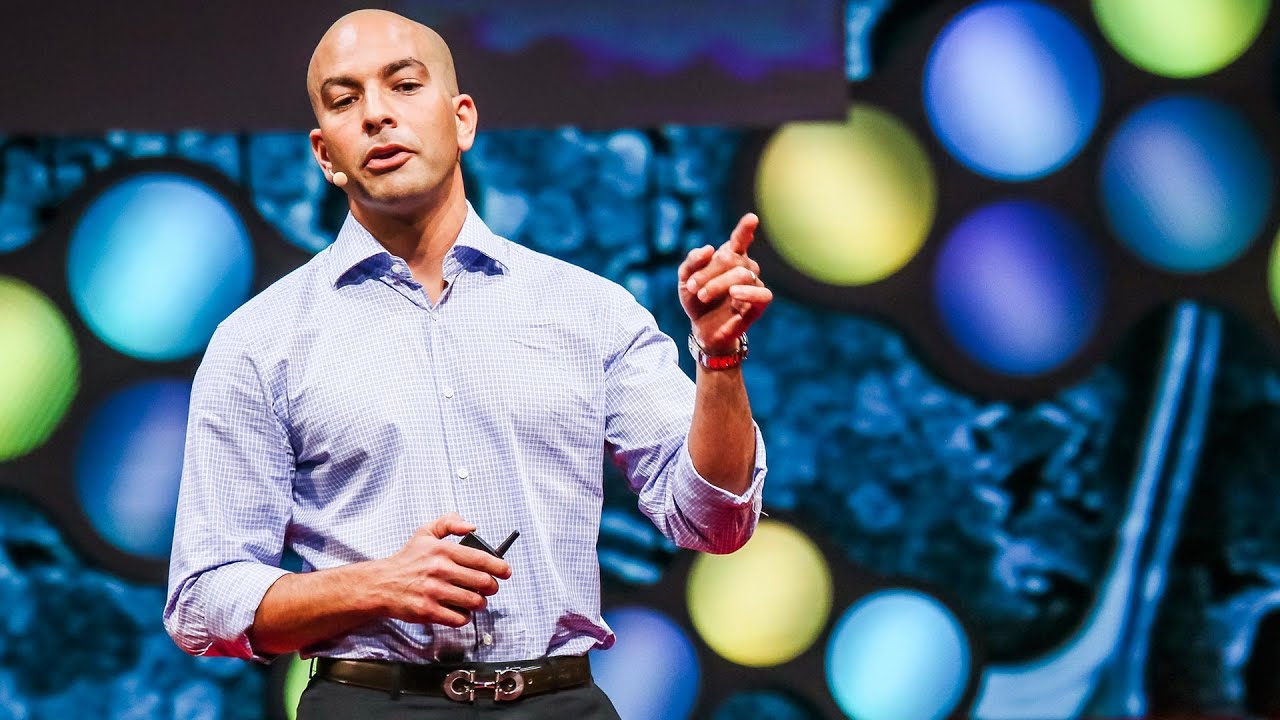Endocrine Function of The Pancreas
On This Page: Endocrine Role Of The Pancreas
Jump To Section
The Pancreas Endocrine Role Produces Hormones
Written by Tony Subia
December 2021
The Endocrine Role of The Pancreas
The Endocrine Function within the pancreas is creating and releasing hormones into the bloodstream with the purpose of regulating healthy levels of blood sugar (glucose) in the bloodstream. The two main hormones are insulin and glucagon that function together to maintain healthy levels of blood sugar which travel through the blood system delivering energy to the body’s cells.
How Does The Endocrine Role Perform To Keep Healthy Levels of Blood Sugar?
The “Insulin” hormone acts to lower blood sugar and the “Glucagon hormone acts to raise blood sugar. Those two hormones perform as a crucial team to maintain healthy blood sugar levels in the bloodstream. Their roles and purpose are not only crucial to the performance of the pancreas itself, but to all other body organs as well including the brain, liver, and kidneys. Endocrine cells which are referred to as “Islets of Langerhans” look like small clusters of grapes. The endocrine tissue only accounts for about 5% of the total pancreas tissue but performs a significantly critical purpose to the entire human body.
Insulin moves glucose from the bloodstream into into the muscles and body tissues for them to use as energy. The insulin also functions to help the liver to absorb and store glucose in case the body’s cells need additional
energy during times of stress or vigorous exercise.
When proper blood sugar levels fall, signals are sent to the to pancreatic alpha cells to release more glucagon hormones. Glucagon causes “glycogen” to be broken-down into glucose within the liver. This results in the
glucagon entering the bloodstream which restores blood sugar back to essential and normal levels to help prevent the onset of Type 2 Diabetes.

Diabetes is Caused By Too Much Glucose in The Bloodstream
During digestion of food , carbohydrates are broken-down into sugar (glucose). The glucose flows into the bloodstream to provide energy to cells with the body. During the process, the pancreas creates and releases insulin into the bloodstream to facilitate providing that energy to the cells. Insulin acts as the “key” that will unlock the door of the cells to let the glucose enter the cell, providing the cells with energy.
What is Type 1 Diabetes?
Type 1 Diabetes is a type of autoimmune disease where the body attacks itself destroying insulin-producing beta cells in the pancreas which makes it necessary for the patient to take insulin injections everyday. What triggers the immune system to attack beta cells in not quite clear.
Only about 5 to 10% of people who are diagnosed with diabetes have Type 1 Diabetes. It mostly strikes children or young adults which is why it is sometimes called “juvenile diabetes”.
Type 1 Diabetes can be inherited a possibly predispose a young person of developing the disease. So if a parent has Type 1 Diabetes, one can become at a higher risk. When both parents have or has it, their children has a higher degree of risk is much higher versus just one parent having the disease. However, this does not mean the children will get the disease it just increases the risk..
There is very little chance that Type 1 Diabetes can cause pancreatic cancer.
What is Type 2 Diabetes and What Causes It?
Sometimes Type 2 Diabetes is called “Adult-Onset Diabetes” or “Insulin Resistant Diabetes”. It is almost exclusive to middle-aged or older people. Over 90% of people diagnosed with diabetes will have Type 2 Diabetes. It is important to note that Type 2 is not the same as Type 1 Diabetes.
In Type 1, the pancreas does not make any insulin at all versus Type 2 Diabetes when the pancreas does not make enough insulin or if it does, the insulin does not preform as it should. Type 2 Diabetes generally affects older adults, although it can strike at any age. When the pancreas does not produce enough insulin or if the cells of the body stop responding to insulin and do not absorb as much glucose for energy as they should, then the glucose (sugar) levels increase to unhealthy in the bloodstream which results in Type 2 Diabetes.
Type 2 Diabetes is typically caused by unhealthy lifestyle factors including obesity generally caused by poor diets and lack of physical exercise which can result in becoming significantly overweight (obesity). If there is a breakdown in the Exocrine Function of the pancreas which under performs in its role of producing digestive enzymes can also lead to Type 2 Diabetes. To avoid onset Type 2 Diabetes, practice a healthy lifestyle. Always seek medical advice to perform blood tests that could expose the existence of Type 2 Diabetes, or expose evidence you are in a state of “Pre-Diabetes” that would mandate lifestyle chances in diet and increased activity.
Can Type 2 Diabetes Cause Pancreatic Cancer?
YES. IT CAN.
Pancreatic cancer resulting in a malfunction of the “Exocrine Function” of the pancreas which is involved in the creation of digestive enzymes is referred to as “Pancreatic Ductal Adenocarcinoma” which has the worst survival rate of all major types of cancer. That type of cancer represents over 90% of pancreatic cancers.
When pancreatic cancer is the result of malfunction of the “Endocrine Function” which creates hormones of involvement of the hormones, that cancer is referred to “Pancreatic Pneuroendocrine Cancer” which is less aggressive versus Adenocarcinoma.
Other Great Diabetic Sources
Cleveland Clinic
National Cancer Institute
Type 2 Diabetes Can Be Prevented



